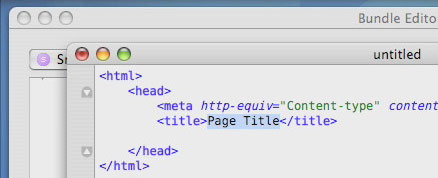
With due respect and appreciation for the three internships I’ve completed so far, I believe the need to learn former practices in web design is less important than in most other career paths. However, there is still essential knowledge that only an internship can provide. Here are some of the pros and cons I’ve come to realize from my last few summers:
The Gravy:
- People skills. Learning effective communication and team work is necessary both in life and work. A determined, self-motivated individual could probably learn as much about web design from Google as they could at any internship, but discovering the value of personal interaction and cooperation can only be had in a group environment.
- The mechanics of business. There is no better place to learn how a business functions than a peek from inside.
- Alternative perspectives. An extra set of eyes is sometimes the best solution to solving a problem. Especially when first starting out, receiving feedback and having someone or a group of people to bounce ideas off of will rapidly speed up the learning process.
- Contacts. Like the old adage, “It’s not what you know, but who you know.” Assuming you show effort and are dedicated to your internship, you’re likely to gain a positive relationship with your employer and probably other businesses that he or she works with or speaks to. Word of mouth will often generate the majority of your work opportunities.
- Reputation. An internship allows you to build your portfolio and expand your learning in an environment that isn’t as demanding or expecting as your first full-time job. The percentage of being hired by the company you intern for is also very high and may lead to other employment options you would not have had or found elsewhere.
The Mauritius Dodo:
- Students are going straight from college, or even high school, to garage start-ups.
- With the rise of Web 2.0 came a slew of online resources and services, most of which are free to use. With the flourish of web communities and open-source tools like Ruby on Rails, it is becomingly increasingly easier to be a web designer. Whereas five years ago it would have taken thousands of dollars to create an application, today’s server fees and capable open-source tools have drastically reduced the cost of actualizing an idea.
- High quality web deisgn makes use of current standards and practices. The requirements to being a successful web designer are less reliant on past knowledge or experience than most traditional jobs. For example, a young entrepreneur would benefit more from a summer reading Dan Cederholm’s Bulletproof Web Design than an internship fiddling with the nested table layout of Company XYZ. While it would be good to know how to handle something like the bugs of IE 5.0, you’d be better off researching how to design for the next browser or mobile devices because that’s where the web is heading.
- Adding to the above, the idea of interning for free or with minimal compensation is a joke since it is often the company who would gain more from a fresh, current thinking intern than the other way around.
What are your thoughts or experiences? Where do you see web related internships 5 years from now?